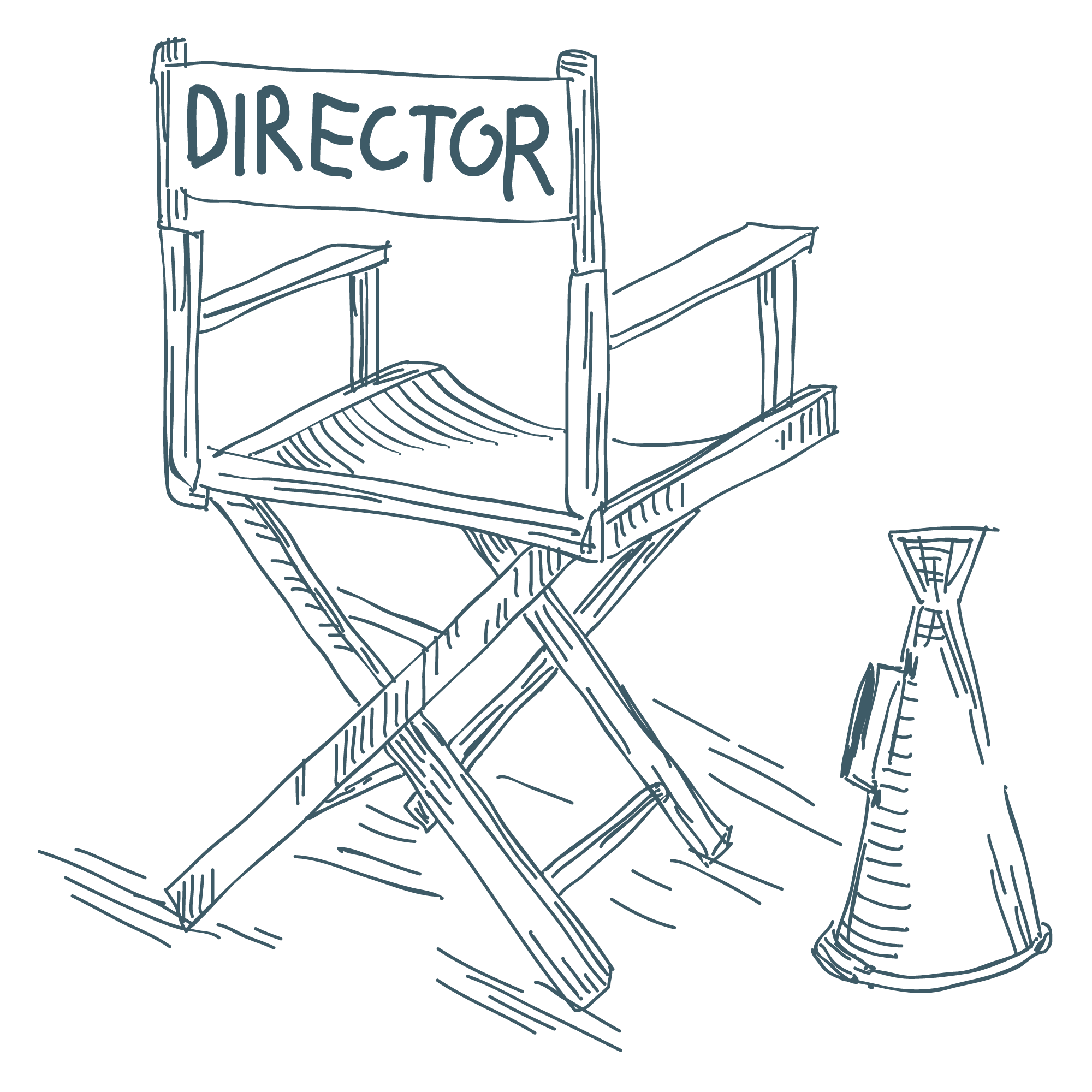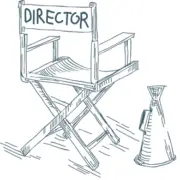How To Direct Actors
“I never said actors are cattle; what I said was all actors should be treated like cattle.”
– Alfred Hitchcock
It is often repeated (mostly by non-directors), that the role of director is the only position on set that requires no expert knowledge whatsoever. This deleterious old chestnut overlooks the role in cinema that demands the least expertise of all: the film actor. As director, incorporate the following tips to grab your stock by the horns and wrangle out the very best cuts.
On Directing Dramatic Films
The key to a successful dramatic film is getting your actors to cry an enormous amount. It’s no longer acceptable to pinch at actors’ love handles or step on their toes to elicit a dramatic response, no matter how convincing the tears will appear on screen. If the lead actors are female or a minority, move them to tears by pointing out that they are making 30% of what the white/male supporting actor is getting paid. If that fails to get the waterworks flowing, step on the actors’ toes, but try to make it look like an accident.
On Directing Comedic Films
While routinely ignored, a good rule of thumb is that a comedy should be funny. It’s important not to make it too funny or you won’t be taken seriously come awards season. While shooting, don’t take it personally if the crew laughs uproariously at the comedic actor’s off-the-cuff remarks and only snickers politely at your long-form diatribes against attending film school. It’s not a competition and, more importantly, actors in a comedy are supposed to be funny. In between takes, try yelling “Do it again, but funnier!” through your director’s megaphone. When the actor does something funny on the ensuing takes, everyone will know exactly where the inspiration came from.
On Directing Improvised Comedies
Audiences today are no longer interested in ‘character-based’ humor and find the more desultory a narrative, the more unbelievably hilarious it is. If the comedic script you’re working from is overly coherent, spend the majority of your shooting time goading the actors to produce increasingly random bursts of dialogue. Provide the editor ample material to work with by filming as many iterations of the same joke as time and budget will allow. If the editor is unable to carve out an acceptable seventy-five minutes from the hundreds of hours of footage you’ve generated, enlist the composer to throw some funny horn and banjo music over the scenes. If the movie remains unwatchable, you’ve got the writer, the actors, the editor and the composer to throw to the wolves.
On Directing Movie Stars
The bigger the star, the bigger the ego – and since the director is the biggest star on any set, you’re entitled to the biggest ego of all. Movie stars have a reputation for being difficult and with good cause: they are all terrible people. Make sure to establish the proper power dynamic by belittling the star’s ideas whenever one is voiced, no matter how good the thought is. If the suggestion is too brilliant to ignore, invent a facile story about how you came up with the idea earlier and have it written down somewhere, probably in your other pair of riding pants. If these efforts fail to take the wind out of the star’s sails, don’t be afraid to stomp on a few star toes. This small but hopefully painful act will do wonders to forge a bond between master and puppet that will double as fodder for an amusing and heart-warming tale of friendship during the press junket.
On Directing Supporting Actors
Contrary to what their paychecks would suggest, movies are not just made of stars. Actors in supporting roles are either up-and-coming bit players hoping to become movie stars, or over-the-hill movie stars looking to prolong their last fleeting moments of fame. Regardless of which side of the chute they land on, it is imperative that you remind them at every opportunity that they are not the stars of this film. The director is the star of this film.
On Not Directing Extras
Extras are just that: extra. Many extras will try to noodle their way into a higher day rate by tricking you into giving them a speaking role. Do not go in for this gambit. Treat them the same as you do everyone else on set: ignore them, and if they are in your way, deliver a swift knock to the shin. They will understand this is movie-speak for ‘get out of the way.’ Even if you caused it to happen, extras don’t get paid more for crying unless you directed them to cry.
On Directing Yourself
State-of-the-art special effects and technical wizardry have made it possible to have a single actor play multiple parts in a movie, but you must resist the urge to cast yourself in every role. Remember: Directing is 90% casting, and 10% prodding. Stick with the tried-and-tested route and use a casting professional to locate an actor that is a taller and much better-looking version of you. If you don’t, you’ll end up kicking yourself.

- About the Author
- Latest Posts
Ivan Ehlers is contributor to MAD Magazine, The New Yorker, and the continuing issue of world-wide moral decline.














